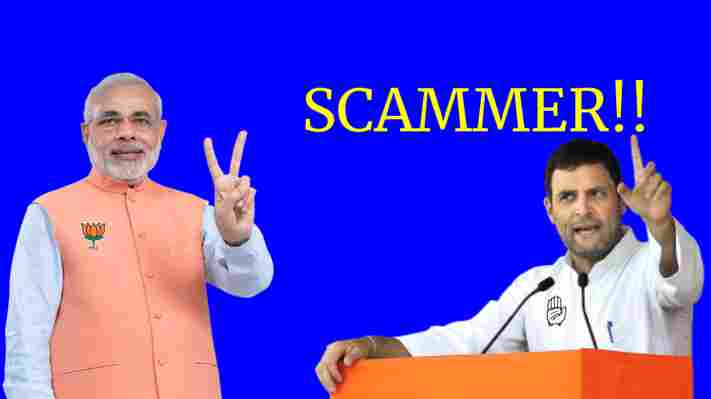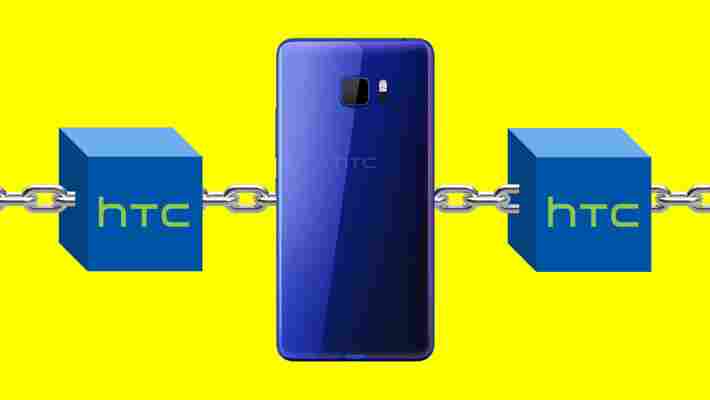A lot of cryptocurrency news has been coming out of India lately, and not for good.

The country’s largest political party, the Indian National Congress (INC), accused the ruling Bharatiya Janta Party (BJP) of orchestrating a Bitcoin scam worth anything between $726 million and $12.78 billion today, Hindustan Times reports.
The said accusations are laid against BJP’s division in the state of Gujarat. INC spokesperson Shaktisinh Gohil alleged that the state leadership of BJP was involved in converting illicit money to the cryptocurrency by so-called ‘hawala’ transactions — a method of transferring money without any funds actually moving.
Gohil said that a complaint with the local police has been filed, but it’s refraining from taking action due to political pressure. “We demand an impartial Supreme Court-monitored judicial investigation in this maze of ‘Mega Bitcoin Scam’ so that the truth comes out,” he told local reporters.
INC claims that this “mega Bitcoin scam” is related to one ‘Shailesh Bhatt,’ who has been involved in two Bitcoin scams before . Bhatt filed a complaint with local police in April, claiming that local police and goons extorted 200 BTC from him. It was later discovered that he himself swindled the funds from someone else.
Gujarat law enforcement authorities found the involvement of a Gujarat BJP legislator in another Bitcoin scam. The legislator is on the run, and INC has now accused him of being involved in this scam as well. The INC alleges that he has threatened to expose all BJP leaders involved in the scam if he is arrested.
The party further alleged that the infamous demonetisation of Indian Rupee last year was meant to be a facade to allow BJP to find ways to legitimize its ill-gained money — and a lot of it was done through cryptocurrency. It also questioned why India’s Prime Minister Narendra Modi (and the leader of BJP) hasn’t bothered to investigate this scam coming from his party.
Cryptocurrency scams are on a rise in India. A host of popular Bollywood stars and a businessman were arrested in June in a $300 million Bitcoin scam. Police personnels in India have also been involved in multiple scams involving virtual currencies.
It is worth noting that political parties in India are known to make tongue-in-cheek allegations against each other. INC’s accusations can’t be taken seriously until valid proof comes to light. Indeed, it would be surprising if the ruling party is involved in a Bitcoin scam of this magnitude, when it is so bent on killing cryptocurrency businesses in the country.
Vodafone, Huawei, Intel and friends form blockchain industry group
The European Telecommunications Standards Institute (ETSI) is getting into the blockchain game, having just set up a new “industry specific group” aimed at exploring the viability and potential of blockchain technologies for various industries.

Founding members include Ericsson, Huawei, Intel, Telefónica, and Vodafone. These industry players will specifically examine the use of permissioned distributed ledgers, ETSI announced yesterday .
The new ETSI group will try to understand the challenges of using permissioned distributed ledgers in business applications. ETSI hopes that the group will be able to develop industry standards for the use of the decentralized technology, including interfaces/APIs/protocols and information models.
Indeed, one of the biggest challenges when using decentralized or distributed technologies in cross-business settings is standardizing processes and workflows in a way that works for all the involved parties. Otherwise it’s likely to create more problems than it solves.
The work group will have its first meeting on January 24, 2019 at Telefónica, Madrid, where it will discuss project priorities and elect representatives from each of the participating companies.
ETSI isn’t the first telecommunications firm to look into blockchain tech. Earlier this year, British telecom regulator, Ofcom, announced it was exploring the technology to help manage the nation’s database of available telephone numbers.
HTC wants to launch ANOTHER blockchain phone this year
Taiwanese mobile phone manufacturer HTC is reportedly planning to launch another blockchain phone before the end of 2019.

Phil Chen, HTC‘s Decentralized Chief Officer, announced the intention during a keynote speech at an investment forum event held in Taipei on Friday last week, Taiwan News reports .
HTC launched its first blockchain phone – called Exodus 1 – last year. It featured a cryptocurrency wallet, accompanied by hardware designed to support decentralized applications (dapps).
Other phone makers like Samsung insist smartphones are great cryptocurrency wallets, researchers still advise using an actual hardware wallet like Trezor or Ledger.
Chen also claimed that the HTC Exodus sold in line with the company’s expectations. Even so, it didn’t help mitigate the firm’s $90.6 million loss in Q4 2018.
Did you know? Hard Fork has its own stage at TNW2019 , our tech conference in Amsterdam. Check it out .











